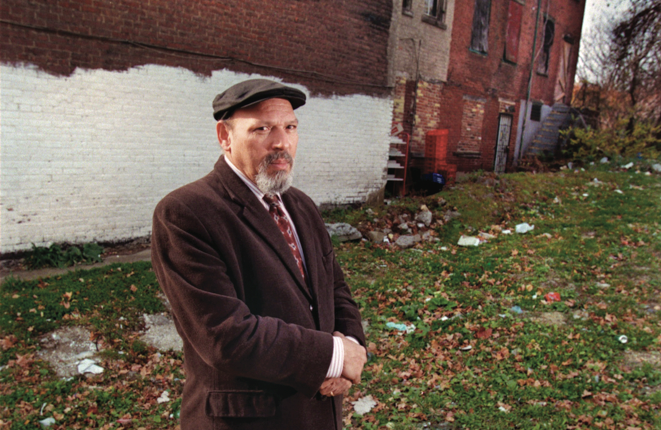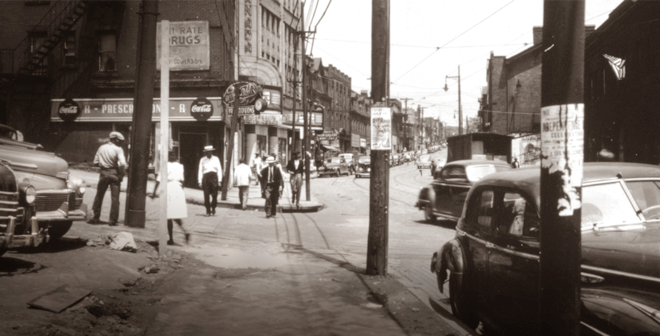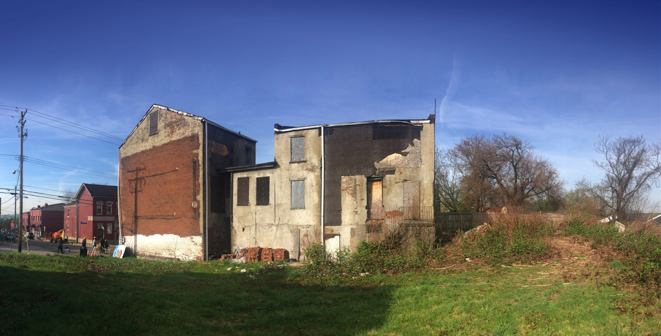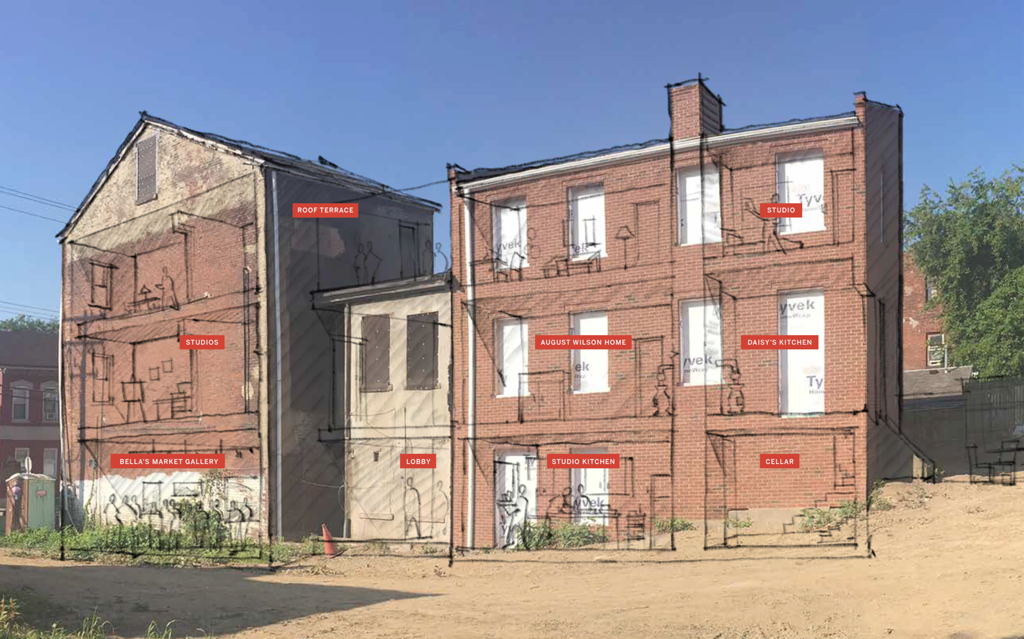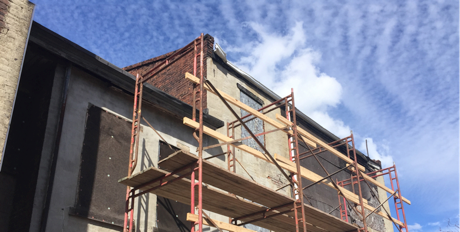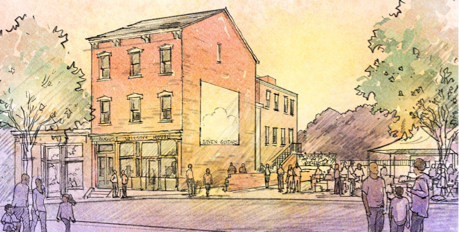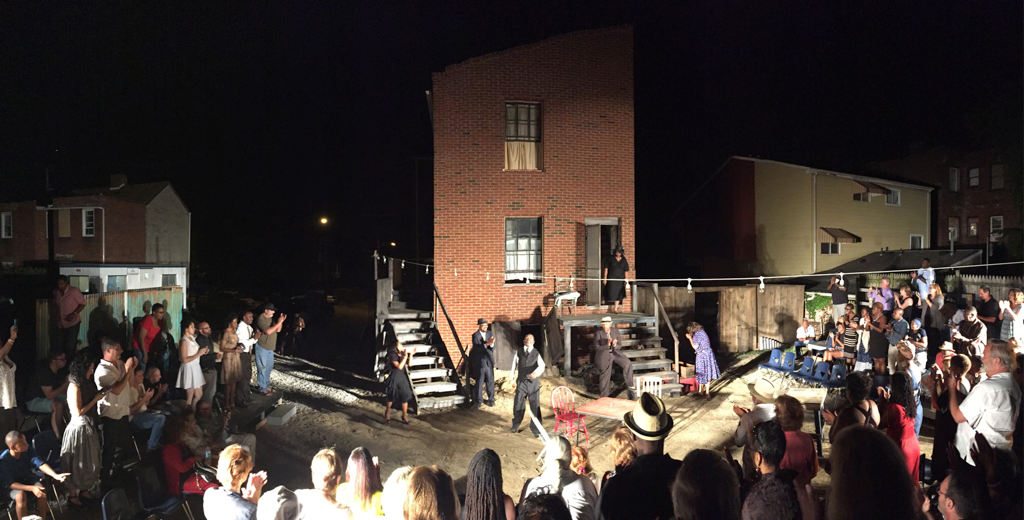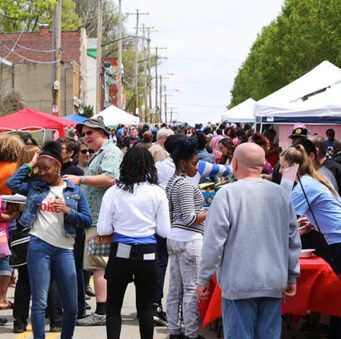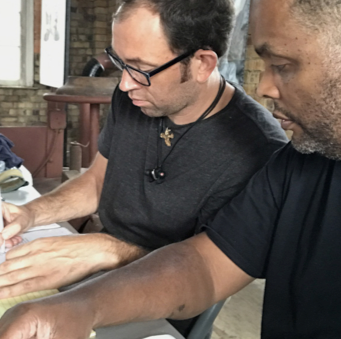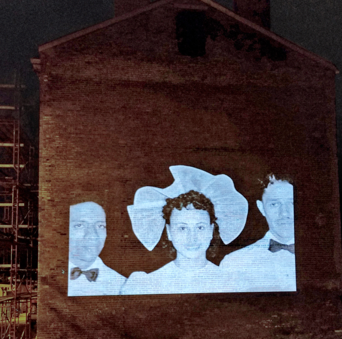Our guiding principle comes from August himself, who often said he didn’t want the house to be a museum. If it was going to be preserved, he said, it should be “useful.” Thus our mission:
… to celebrate the literary and personal legacy of August Wilson and serve as an arts center to nurture the historic Hill District community and arts practitioners and scholars influenced by his work.
The August Wilson House aims first to celebrate the rich store of personal memory and community history into which August dipped the ladle of his transforming art, and second to extend his legacy by advancing the art and culture of the African diaspora and impacting the cultural landscape of the Hill and beyond. The two-room childhood home, restored to its 1950’s period of significance in August’s life, will be revived as an intimate interpretive site, with adjacent rooms housing digital and audio displays and artifacts about his life and plays.
Beyond will be a series of small artist studios and community gathering spaces. Outside will be annual productions of the American Century Cycle plays, perhaps growing into a biennial August Wilson Festival.
Through August Wilson Visiting Fellowships, both local and national artists and scholars will be provided immersive work, research, and community exchange opportunities in return for partnering with Hill District organizations and Pittsburgh arts groups and universities. Ultimately, the AWH will be a catalyst in the Hill’s re-emergence, linking with other Hill institutions (some being restored themselves) into a network of revival.
It is high time the AWH was put to use, as August wanted.
